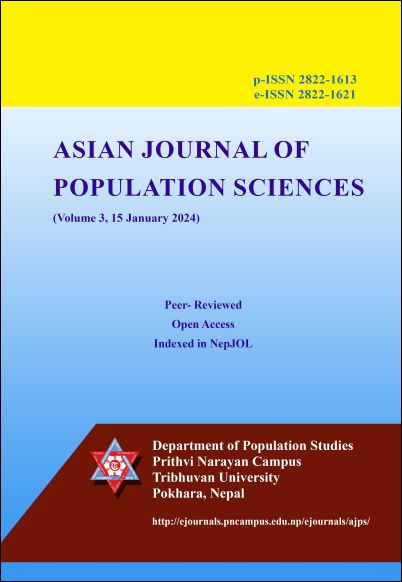Family's Perception of Death of Foreign Labour Migrants and Its Impact on Their Economy
DOI:
https://doi.org/10.3126/ajps.v3i1.61831Keywords:
Foreign employment, scholarship, insurance, academic achievement, family harmonyAbstract
This study explores the perceptions of families of foreign labour migrants who have experienced an increasing number of deaths in their workplaces. Nearly one thousand foreign labour migrants died in their workplace in the year 2019, this number is increasing day by day. This study analyzed the family’s perceptions of the death of foreign labour migrants and its impact on their families. It uses a sequential mixed method to show the experiences of schooling children (age 8–18 years). Purposive sampling was used to choose the Bagmati province and districts, while simple random sampling was used to choose schools and students. The reason for selecting the province and districts was the higher foreign labour migration in 2019. About 77 respondents were selected by using simple random sampling, and a semi-structured questionnaire was used for quantitative data collection. The death of parents in foreign labour migration raises many difficulties for the persons left behind at home. Nearly thirty per cent of families, including children, were suffering sensitively from the loss of parents. Missing remittance from the death of the breadwinner hurt the family's food consumption, accommodation, and health facilities. Some families could not get government support and insurance due to the loss of legal documents. Parental death also impacts children's schooling like attendance and academic achievement. It also raises family complications like remarriage, separation, and divorce. The demise of a family member increases the social and economic burden on the migrant community. It negatively impacts family harmony and child education. To support family migrants, an awareness programme is recommended to slow down the psychological stress on families, and a special support mechanism is recommended for orphan children’s education.
Downloads
Downloads
Published
How to Cite
Issue
Section
License

This work is licensed under a Creative Commons Attribution-ShareAlike 4.0 International License.




